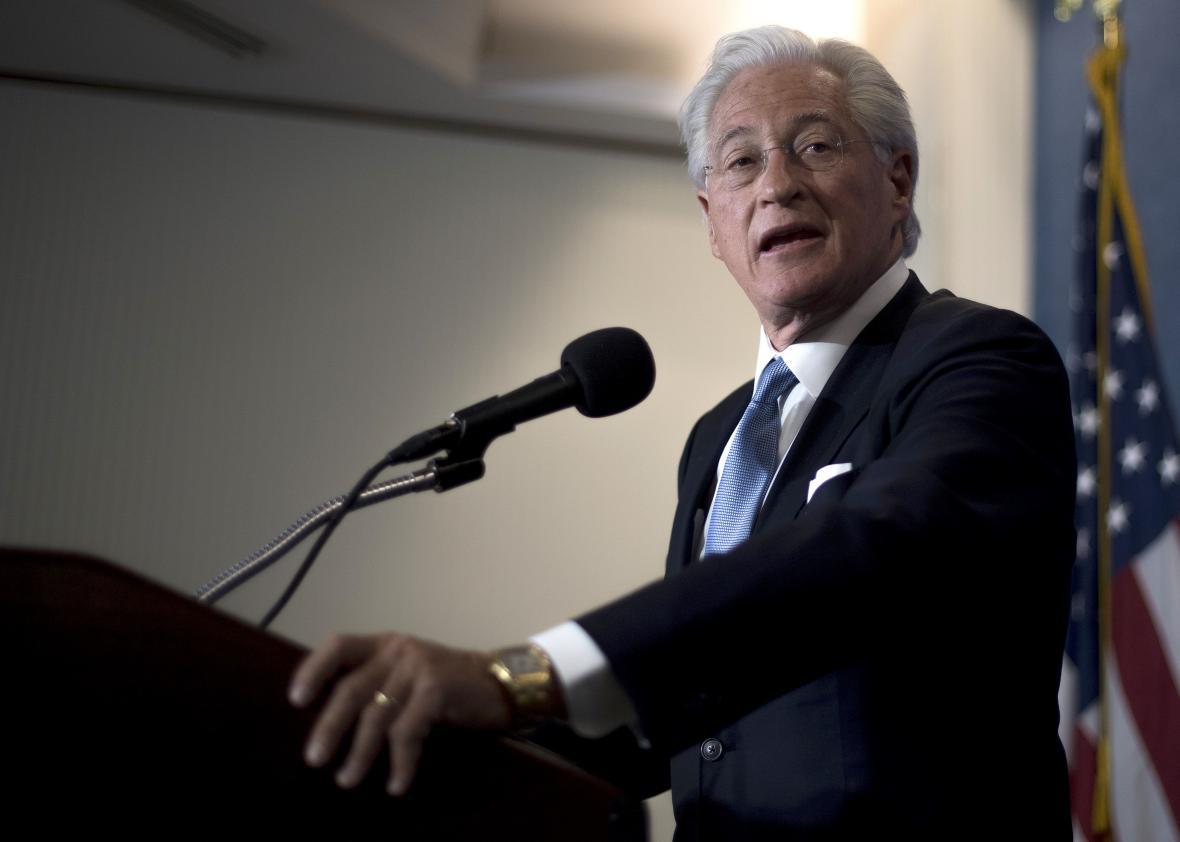At Thursday’s Senate Intelligence Committee hearing, James Comey revealed that he’d leaked a story to the press after his ouster as FBI director. Comey testified that he’d asked a friend—a professor at Columbia Law School who has since been confirmed to be former federal prosecutor Daniel Richman—to share with a reporter the “contents of the memo” he’d written after a Feb. 14 meeting with Donald Trump in the Oval Office. It was in that private meeting, Comey alleges, that the president urged him to drop the FBI’s investigation into Michael Flynn. Comey explained that he made his account of the meeting public because he believed such a move would “prompt the appointment of a special counsel” to oversee the Russia investigation.
The former FBI director’s decision to orchestrate a leak as a means of putting pressure on Trump’s Department of Justice has been seized upon by conservative media, earning top billing at Breitbart, Newsmax, and the Drudge Report. It has also attracted the focus of Trump’s personal lawyer, Marc Kasowitz, who issued a statement Thursday afternoon in which he condemned “those in government who are actively attempting to undermine this administration with selective and illegal leaks of classified information and privileged communications,” and asserted unequivocally that Comey had “now admitted” that he was “one of these leakers.”
More significantly, Kasowitz suggested that Comey might have committed a crime when he “unilaterally and surreptitiously made unauthorized disclosures to the press of privileged communications with the President.” The statement closed with an ominous warning: “We will leave it [to] the appropriate authorities to determine whether [these] leaks should be investigated along with all those others being investigated.”
Contrary to Kasowitz’s suggestion, there was nothing illegal about Comey’s decision to tell a reporter—directly or indirectly—about the contents of the memos he’d written after his meetings with the president. Furthermore, the notion that the conversations described in those memos were “privileged” is nonsensical. As University of Texas School of Law professor Stephen Vladeck explained to me in an email, that’s not how privilege works:
The President can claim privilege over whatever he wants to, but it’s irrelevant here; privilege is a defense against an effort to compel disclosure (for example, against a subpoena or a warrant). It’s a shield, not a sword. Here, where a former government employee is voluntarily testifying / acting, there just aren’t any criminal consequences for violating even a valid claim of privilege.
The only way there could ever be a criminal case against Comey for leaking his memos, Vladeck told me, is if they contain classified national security information (in that case, a leak could be a violation of the Espionage Act) or information “that has pecuniary value to the United States” (which could be a violation of the federal conversion-of-property statute). Would it be possible to make the argument that the memo Comey leaked did contain that kind of information? “If all he did was memorialize the contents of a conversation with the president the contents of which were not themselves classified, no,” Vladeck says.
In his statement, Kasowitz lambasted Comey for leaking the contents of his “memos” to his “friends.” Trump’s lawyer also asserted that, according to Comey’s own testimony, one of these memos was classified. All of this is false. Comey specifically stated in his testimony that he directed one friend to leak the contents of a single memo—the one about his Oval Office conversation with Trump—and that he’d deliberately written it as an unclassified document. Here’s the relevant exchange between Comey and Sen. Mark Warner:
Warner: You made clear [in your prepared remarks] that you wrote that memo in a way that was unclassified. If you affirmatively made the decision to write a memo that was unclassified, was that because you felt at some point the facts of that meeting would have to … be shared with the American people?
Comey: Well, I remember thinking, This is a very disturbing development. … If I write it in such a way that I don’t include anything that would trigger classification, that would make it easier for us to discuss within the FBI and the government and to hold on to it in a way that makes it accessible to us.
Comey did mention on Thursday that he had one classified conversation with Trump, but that it was unrelated to the Russia investigation and “was brief and entirely professional.”
Is it possible that leaking details about his confidential conversations with the president violated Comey’s employment agreement with the FBI? Sure, says Vladeck. But that’s not the same thing as breaking a law, and Kasowitz (almost) certainly knows that. For that reason, the lawyer’s sternly worded—not to mention typo-ridden—letter should be seen not as an actual threat to have Comey investigated, but as something closer to a press release.
In that capacity, it will likely succeed. Given the gusto with which conservative media has already seized on this aspect of Comey’s testimony, the former FBI director can look forward to weeks, months, and probably years of being pilloried in the right-wing press—and, perhaps, on the president’s Twitter page—as the ultimate deep state leaker. It will be punishing, for sure. But it won’t come with a prison sentence.
Update, June 8: This post has been updated to note that Kasowitz characterized Comey’s leak as “selective and illegal.”
